Risperidone, powder for I.M. injection, 25 mg, 37.5 mg and 50 mg (modified release) with 2 mL diluent in pre-filled syringe, Risperdal Consta® , March 2006
Page last updated: 30 June 2006
PDF version of this page (PDF 125 KB)
Public Summary Document
Product: Risperidone, powder for I.M. injection, 25 mg, 37.5 mg and 50 mg (modified release)
with 2 mL diluent in pre-filled syringe, Risperdal Consta®
Sponsor: Janssen-Cilag Pty Ltd
Date of PBAC Consideration: March 2006
1. Purpose of Application
This application sought a section 100 (Highly Specialised Drugs) listing PBS for risperidone long-acting intramuscular injection, in addition to the current section 85 listing.
Section 100 Highly Specialised Drugs are medicines for the treatment of chronic conditions, which, because of their clinical use or other special features, are restricted to prescribing through public and private hospitals which have appropriate specialist facilities.
Section 85 is for medicines prescribed through the community, not necessarily attached to a specialist facility. Section 85 listings appear in the white pages of the Schedule of Pharmaceutical Benefits.
2. Background
At the July 2004 meeting, the Pharmaceutical Benefits Advisory Committee (PBAC) recommended a section 85, authority required listing of Risperdal Consta for the treatment of schizophrenia. This recommendation was implemented on 1 February 2005.
The PBAC previously considered a request for dual section 85 and section 100 listings at the July 2005 meeting. At that time, the PBAC noted that the evidence of a problem that had been experienced with access of risperidone injection was confined to patients in NSW. Advice received from the Highly Specialised Drugs Working Party (HSDWP) suggested that these problems had been resolved. At that time, there was insufficient evidence to indicate that the current authority required arrangements had led to non-adherence because risperidone injection had only been listed for four months. Although the PBAC viewed with concern the possibility of barriers to access for a vulnerable group of patients, including the issue of maintaining the cold chain, the PBAC rejected the request of the submission.
The Highly Specialised Drugs Working Party (HSDWP) comprises representatives from the Health Departments of each State/Territory, the Australian Private Hospital Association and the Commonwealth as chair. The role of the HSDWP is to consider the policy and administrative aspects of the supply of certain specialised drugs through the hospital system.
3. Registration Status
Risperdal Consta 25 mg, 37.5 mg and 50 mg were registered by the Therapeutic Goods Administration on 4 April 2003 for "the treatment of schizophrenia and related psychoses."
4. Listing Requested and PBAC’s View
The submission requested the following listing in addition to the current Section 85 listing:
Section 100 (Highly Specialised Drug) private hospital authority required
For the treatment of schizophrenia in patients whose illness requires supervision and treatment at hospital outpatient clinics or affiliated mental health centres.
The PBAC noted that there had been no change in the position of the HSDWP with respect to the listing of risperidone under section 100 for this group of patients, in spite of the survey presented to the HSDWP and in this submission. The HSDWP continues not to support listing under the section 100 Highly Specialised Drugs program.
5. Clinical Place for the Proposed Therapy
Risperdal Consta is a long acting atypical antipsychotic injection used for the treatment of schizophrenia in the "at risk" group of patients i.e. those patients who are non-adherent, or have symptom exacerbations and/or neural toxicities, estimated to be 60% of patients. These patients are generally cared for in public hospitals, mental health centres and/or outpatients or community services.
6. Comparator
The submission did not present a comparator as Risperdal Consta is already listed as a pharmaceutical benefit.
7. Clinical Trials
No new clinical or economic data were presented in the submission. The outcomes of a survey of community mental health service providers on patient access issues (including product distribution and storage) were presented to address the issues arising from the PBAC’s rejection of the same request in July 2005.
The survey took the form of semi-structured, telephone interviews. A qualitative summary of the results was presented.
8. Results of Trials
The survey results characterised the potential patient access issues and the burden of implementing measures to ensure patients received their medication safely and efficiently under the current section 85 listing pharmacy supply arrangements. A number of respondents reported instances of breaches or suspected breaches recommended supply and storage arrangements, including maintenance of the cold chain. The discussion highlighted the time by mental health professionals in following measures adopted in lieu of patient involvement in the supply and storage of the injection.
9. Clinical Claim
Not applicable. No clinical claim was required for this minor submission.
10. Economic Analysis
Not applicable. No economic analysis was required for this minor submission.
11. Estimated PBS Usage and Financial Implications
The submission did not update the previously provided information which stated that a section 100 listing would not increase the PBS budget and predicted a cost saving in the range of < $10 million after 4 years.
12. Recommendation and Reasons
The PBAC was not convinced that availability under section 100 would address the submission’s claimed problems with patient access. Further the submitted survey was considered not to provide sufficient evidence that patients were being denied access to the drug under the current mechanism of supply. The PBAC therefore rejected the submission.
13. Context for Decision
The PBAC helps decide whether and, if so, how medicines should be subsidised in Australia. It considers submissions in this context. A PBAC decision not to recommend listing or not to recommend changing a listing does not represent a final PBAC view about the merits of the medicine. A company can resubmit to the PBAC or seek independent review of the PBAC decision.
14. Sponsor’s Comment
Janssen-Cilag will continue to monitor whether patients who have medication adherence issues have access problems under the current section 85 PBS listing.




